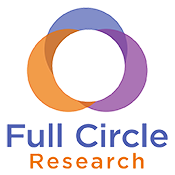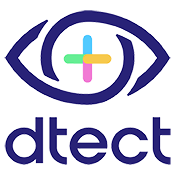Stay connected
Be the first to know about new programs, upcoming events, or other exciting opportunities happening at the University of Georgia by joining our mailing list.
About this course
What you’ll learn

Learning objectives
After completing this course you should be able to:
- Describe the process of creating an analysis plan, and give examples of alternative analytic purposes (e.g., explanatory versus confirmatory).
- Describe the key data sources.
- Name and define the key data types (nominal, ordinal, interval, ratio, etc.).
- Explain the process of matching analytic techniques to different situations and needs, and give examples.
- Summarize descriptive and visual approaches used to familiarize oneself with the data and to identify problems with the data.
- Explain how to assess the impact of missing responses, and select and apply appropriate remedies.
- State the reasons for and methods of statistically adjusting data; e.g., weighting, variable re-specification, and scale transformation.
- Assess the characteristics of the distribution of the data and explain the implications of normality, non-normality, skewness, and multimodal data.
- Illustrate the process for creating and testing hypotheses.
- Compare and contrast the differences between type I and type II errors, and their potential impact on business decisions.
- Describe the difference between statistical and business significance in the context of group comparisons, and explain the factors that have an impact on statistical significance.
- Describe the difference between association and causality, and the potential impact on business decisions and outcomes.
- Identify the major computer programs in current use in market research for the analysis of data.
- Explain how to turn findings into market research conclusions, link findings to business decisions, and create actionable recommendations.
Who should attend?
- Entry-level researchers looking for a solid introduction to quantitative data analysis.
- Mid-level staff seeking to expand their skillset.
- Experienced researchers looking to catch up with the latest developments.
- Corporations seeking professional development options for their internal training portfolio.
- Suppliers seeking courses for new-employee onboarding.
- Researchers whose job involves leading or contributing to project design.
- Analysts needing to understand how best to analyze quantitative data, and the pitfalls to avoid.
- Client-side researchers responsible for designing research and ensuring that the analysis leads to reliable insights.
- People just entering the research field who want to understand this important aspect of the research process.
Continuing Education Information
Students successfully completing graded components earn a Digital Badge (Opens in a new window) and 1.2 University of Georgia Continuing Education Unit (Opens in a new window) (CEU) from The University of Georgia.
As a graduate of the course you will be recognized by industry associations, employers, peer groups and other professionals as understanding how to translate your research findings into reports and presentations that grab your audience’s attention, address the business decision your client needs to make, and offer sound and useful recommendations. This recognition will help you advance in your company and the industry.

CAIP Canada (Opens in a new window) also recommends the course for candidates looking to fill in the gaps or gain a refresher in specific areas.
Requirements & policies
Schedule
Enroll at any time and complete the course’s required graded components within 30 days.
Fees & funding information
$359 – Standard Fee
$329 – Association Discount (Members* of: Insights Association; ESOMAR; Canadian Research Insights Council, The Research Society, Intellus Worldwide, QRCA, AMAI, WAPOR-Latinoamérica, MRII Board of Directors, UGA MMR Advisory Board.)
$50 – One-Month Extension (only one extension is granted per participant)
*Membership will be verified.
Prepayment is required to be registered. The prices listed are per person (US Funds).
Cancellation or refund
We will issue a refund, minus a $100 processing fee, if you have not accessed the online course. All cancellation and refund requests must be sent via email to gc-student@uga.edu no later than seven (7) days after your course access information is issued.

Technology
Take advantage of the different features (PDF files, URLs/links to external websites, animated exercises, audio and video clips) you should use a browser such as Chrome (Opens in a new window), Firefox (Opens in a new window), Microsoft Edge (Opens in a new window), or Safari (Opens in a new window) and a fast internet connection provide the best experience. The online platform supports many popular web browser versions. To find out if your computer’s current software configuration is compatible, see System & Software Requirements (Opens in a new window).
Prerequisites
There are no prerequisites for enrolling. However, the course assumes some knowledge of basic research design and quantitative research practices.
What knowledge is assumed by the course?
You should be familiar with:
- Sampling and sampling error (which is covered in a separate Course, Sampling in Market Research)
- Types of data variables (which is covered in a separate Course, Measurement and Questionnaire Design)
- Weighting (which is covered in Course, Sampling in Market Research)
- It would be helpful to have some familiarity with secondary data, which is covered in detail in a separate course, Working with Secondary Data: Syndicated and Big Data.
Explore more foundational, topic-specific courses in our Principles Express series (Opens in a new window).
Textbooks
Suggested (not required)
Malhotra, Naresh K., Essentials of Marketing Research: A Hands-On Orientation, Pearson Education: Upper Saddle River, NJ. ISBN-13: 978-0-13-340182-0 (digital subscription edition)
Included in the online course are suggested reading assignments from the above textbook. These readings are not required content and will not be part of the testing for the course. The textbook suggestions are simply intended to add additional depth to your understanding of the topic.
People & organizations
Author
Ray Poynter – Managing Director, The Future Place & Founder of NewMR
Ray is the author of The Handbook of Mobile Market Research, The Handbook of Online and Social Media Research and the #IPASOCIALWORKS Guide to Measuring Not Counting. He is the founder of NewMR.org, editor of the ESOMAR book Answers to Contemporary Market Research Questions, and is the Managing Director of The Future Place, a UK-based consultancy, specializing in training.
Ray has spent the last 35 years at the intersection of innovation, technology, and Market Research, during which time Ray has held director level positions with Vision Critical, Virtual Surveys, The Research Business, Millward Brown, Sandpiper and IntelliQuest.

Supporting associations
Founding Organizations
Select the organization to visit their websites.
Proud Corporate Sponsors of MRII
 (Opens in a new window)
(Opens in a new window) (Opens in a new window)
(Opens in a new window) (Opens in a new window)
(Opens in a new window) (Opens in a new window)
(Opens in a new window) (Opens in a new window)
(Opens in a new window) (Opens in a new window)
(Opens in a new window) (Opens in a new window)
(Opens in a new window) (Opens in a new window)
(Opens in a new window) (Opens in a new window)
(Opens in a new window) (Opens in a new window)
(Opens in a new window) (Opens in a new window)
(Opens in a new window) (Opens in a new window)
(Opens in a new window) (Opens in a new window)
(Opens in a new window) (Opens in a new window)
(Opens in a new window) (Opens in a new window)
(Opens in a new window) (Opens in a new window)
(Opens in a new window) (Opens in a new window)
(Opens in a new window) (Opens in a new window)
(Opens in a new window) (Opens in a new window)
(Opens in a new window)Prices, course details, dates, and times are subject to change.
Contact us + FAQs
FAQs
View the most frequent questions asked by our learners
Financial and Military Assistance
Find out which programs are eligible for assistance
Accommodations
View our accommodation policy















